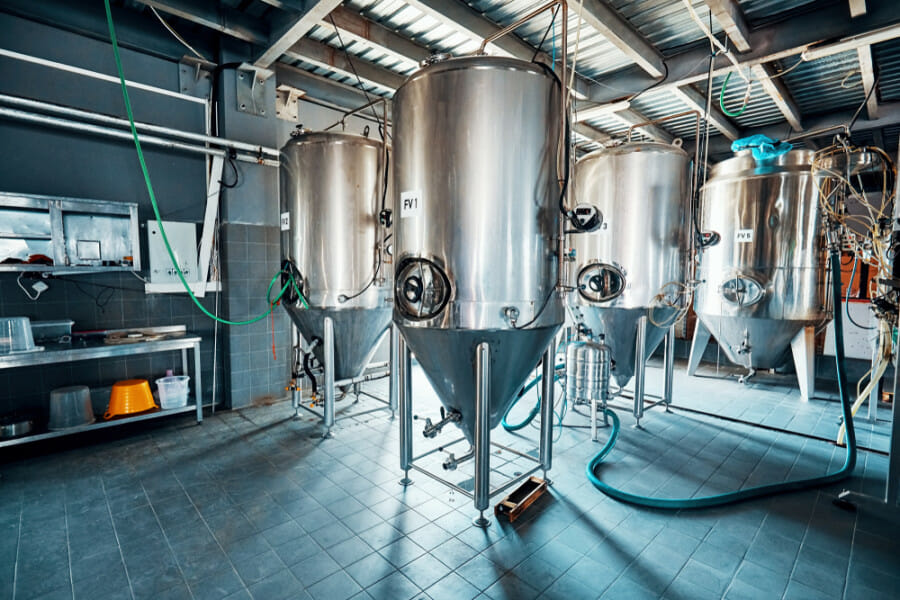Raihane Hassaine: How Fermentation Is Changing the Wellness and Nutrition Market
Raihane Hassaine has taken a keen interest in health and fitness since studying nutrition at university. Today, she works as a nutrition and wellness specialist, providing expert advice to both individuals and corporate clients. This article will explore the potential of fermentation to help reduce meat consumption, providing a healthier, more sustainable alternative to meat.
Although the number of vegetarians and vegans globally remains relatively modest compared with meat-eaters, consumers all over the world are coming under increasing pressure to reduce their meat consumption. The negative impact of meat production on the environment is well reported, contributing to climate change, as well as putting vast pressure on precious water supplies and other natural resources.
A growing body of evidence suggests a correlation between excessive meat consumption and an elevated risk of developing a variety of different health conditions. In a 2022 survey published by Euromonitor International, more than 29% of respondents reported that they were reducing their consumption of meat and animal products to improve their diet. Red meat in particular has been linked with health problem such as heart disease and high cholesterol, with processed red meat products posing even greater risk to health.
Although health and sustainability concerns drive an ever-increasing appetite for meat substitutes, in reality, the often weak sensory appeal leaves many market offerings lacking. The addition of high levels of fat, salt and seasonings in an attempt to improve the taste raises concerns about the amount of processing that such products undergo and the impact on their nutritional value.
The Fungi Protein Association was launched in 2022, creating a new trade group for companies operating in the fermentation of fungi for food products and highlighting the importance of technology in the food industry. The organization is predicted to contribute to the commercialization of fermentation-derived foods, encouraging more companies to venture into the industry.
Fermentation is nothing new. Indeed, the process has been used by civilizations all over the world for thousands of years. Paul Altaffer is chief innovation officer for RFI Ingredients, a company based in Orangeburg, New York. He suggests that fermentation is not becoming a hot technology but has been one all along, as an ancient practice that is being rediscovered. Fermentation not only poses scope to improve food quality and human health but also has vast potential to protect the health of the planet.
The relationship between fermentation and the gut microbiome has attracted a huge amount of attention in recent years. Research reveals that gut bacteria use fermentation to break down food to feed themselves, in the process producing health-promoting fermentation byproducts. In addition, fermentation also helps to break down poorly metabolized nutrients into more digestible and bioavailable forms. Products such as kimchee, sauerkraut, kefir and kombucha have been embraced by modern consumers as gut-friendly pre-fermented foods.
The process of fermentation dates back millennia. The ancient Sumerians used the technique to make bread and beer, both of which remain fundamentally valuable sources of a variety of different nutrients to this day, including B vitamins generated by yeasts used in the fermentation process. Casey Lippmeier is the senior vice president of innovation for the Bedford, Massachusetts-based company Conagen. He indicates that the pure forms of these vitamins are produced in much the same way today, with the tools of biotechnology used to coax participating microbes into producing high titers of healthy, nutritional products more economically and sustainably than was previously possible.
In addition to B vitamins, fermentation can also be used to generate ‘cutting-edge’ nutrients such as omega-3s and essential amino acids, including pyrroloquinoline quinone and ergothioneine. Professor Lippmeier points out that nutrients are not the only fermentation products that food makers consider useful. Take for example the rise of stevia from an obscure plant-based extract to a popular sugar substitute sold in grocery stores across the globe today.
Fermented meat increases the fiber and protein content of end-products while better replicating the texture and flavor of meat. The food production method also reportedly offers additional sustainability benefits. For example, fermentation is more apt for decentralization, making it more resilient to adverse weather events, helping food producers to mitigate the vulnerability of food supplies caused by climate change.
Meat production takes a huge toll on the environment, with vast tracts of land required to farm cattle. Not only does meat production place pressure on the earth’s limited resources, driving deforestation, but it also contributes heavily to greenhouse gas emissions, contributing to climate change, which in turn impacts weather patterns and crop production, potentially negatively impacting the availability of food for an ever-increasing global population.
Requiring significantly less water and land resources than animal meat production, fermentation paves the way for accelerated production of meat alternatives, culminating in increased food security for the global population. With global hunger still at critical levels across Asia and Africa today, fermentation poses potentially life-saving benefits for the global population.















